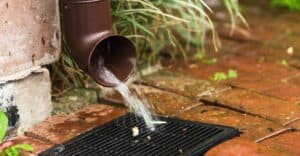The plumbing industry is one of the oldest and most prolific professional engagements in human civilization. The plumbing industry dates back to the very ancient times with roots that can be traced to various ancient civilizations including the Romans, Chinese, Persians, Greeks, and Indians. Interestingly, the functional role of the plumbing industry has not changed much since the ancient days. Just like in modern times, ancient plumbing installations were mainly used for water supply and waste removal or disposal. The only main difference between modern and ancient plumbing is the physical implementation or plumbing methodologies that were used then and the ones that are implemented now. For instance, whereas the ancient world used underground aqueducts and waterways to supply clean water and drain waste water, we now use synthetic pipes to carry our clean and waste water. If you wish to learn more about modern plumbing practices, read on.
What Is Plumbing?
The word plumbing is borrowed from the Latin word, plumbum, which means lead, hence the Pb chemical symbol for lead. This is because the first plumbing systems in the Roman world used lead pipes. As a word, plumbing is usually used both as a verb and as a noun. The verb refers to the act or practice of plumbing and the noun defines the things that constitute or make up a plumbing system. Plumbing refers to all components, devices, and systems that are used to convey or guide fluids from one point to another in an infrastructural setting. As a verb, plumbing refers to the actual occupation or practice of installing, repairing, replacing, or maintaining these plumbing components, devices, or systems. Plumbing is done by plumbing service professionals, who are the career professionals in this industry.
Who Are Plumbing Professionals?
Plumbing professionals are trained technicians who serve in the plumbing industry. Plumbing professionals undergo various academic and technical training courses before sitting and passing various industry exams. They are licensed at the state level before they can start practicing in their respective states. Plumbing professionals start at the apprentice level before proceeding to the journeyman rank and the graduating into master plumbers. Master plumbers are certified and licensed to practice as professional plumbers in their respective states by the contractors’ state licensing board. Professional plumbers who offer their services to homeowners are called residential plumbers while those that service business owners, institutions, and government bodies are called commercial plumbers.
Contracting A Professional Plumber
When contracting a professional plumber for any plumbing issue or project, you should always consider his training or professional level. You should verify his academic and technical credentials. Make sure that he is properly certified and licensed to provide plumbing services in your state. Also ensure that he is properly insured and bonded in accordance with the law and that he has an excellent industry reputation.
Types Of Plumbing Services
There are many different types of plumbing services. At the most basic level, plumbing professionals handle all kinds of plumbing installations and repairs. This includes the installation, repair, and replacement of plumbing fixtures, fittings, and appliances like sinks, water heaters, toilets, showers, faucets, bath tubs, clothes washers, dishwashers etc. In addition to handling San Diego plumbing repairs, professional plumbers also provide drain cleaning services and home remodeling services. Emergency plumbing services cover all kinds of plumbing issues including water pipe leaks, gas leaks, water heater breakdowns, clogged drains, leaking fixtures and so many more.

.svg)
